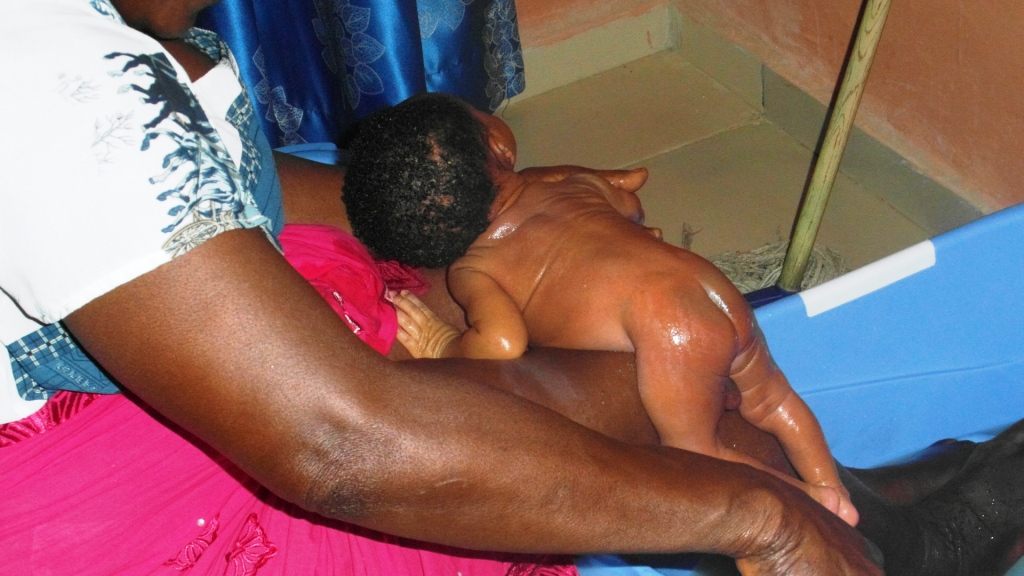When Brian Adeyemi was born three years ago, his birth was recorded in the maternity register of a private hospital—and certified on a hospital letterhead card.
Before 1992, record of his birth and existence would have ended there. But new policy mandating the National Population Commission to register every birth since 1992 meant his parents had to take his hospital card to the commission’s office.
A registrar issued an official birth certificate from the commission.
John Udo’s mother took her one-year old on a routine post-natal visit to Customs Hospital in Karu when she heard a registrar was visiting. She filled out a form, paid N200 and took home an official birth certificate for her son.
Both children officially count among Nigeria’s children, with certificates to prove it. Some seven in 10 children overall across Nigeria still do not have their births registered. They are the missing children.
By last year, only 47 in every 100 children aged under five were registered, according to the Multiple Indicator Cluster Survey.
NPC deployed RapidSMS, an online database to track registered births nationwide.
The database collects real-time information over SMSs sent by birth registrars scattered across the country, ticking upward on each new registration.
In August alone, the births of 144,047 children aged under one were registered. A total 223,227 children aged one to five were registered, alongside 92,387 children aged over five.
Cumulatively, births of a total 1,573,096 children under age one have been registered by August. Some 3,027,962 children aged one to five have been registered. The births of 1,265,485 children aged above five have also been registered.
The dashboard updates twice monthly—in the middle and at the end. It is useful as a monitoring and allows states to analyse how well the birth registration runs within their territories.
But it also opens up a huge gap in birth registration. Nigeria is estimated to have an annual birth cohort of around 7 million—that’s 7 million children born every year.
Only eight in every 100 of them are registered in the country, the RapidSMS database indicates. That’s more than half of all children born each year unaccounted for, officially.
Across Africa, only 44 in 100 births are registered for children aged under five. That leaves 85 million children unregistered: 32 million of them are in Nigeria.
Children whose births are unregistered have “no official record of their full names, parents, place of birth, date of birth and their nationality,” said Sharon Oladiji, child protection specialist at the United Nations Children’s Fund in Nigeria.
“Their access to basic services is under threat; their official ‘invisibility’ increases their vulnerability to abuse and exploitation. In legal terms, they do not exist. Violations of their rights are going unnoticed.”

Where are the children
“Everything in life is about our age [for entering service, for requiring, for voting] and yet the piece of paper as evidence to this age, we don’t give it,” said Oladiji.
Some 190 countries have ratified the Convention on the Rights of the Child. The convention obligates countries to do everything possible to protect children, ensure their survival, allow their participation and foster their development. UNICEF is the only United Nations agency named to support countries register births.
Birth registration falls under survival—and guarantees children a right to name, nationality and identity.
But a huge gap still exists between the number of children born and the number registered with an identity.
“It is not because the government doesn’t want to increase registration,” says Oladiji.
“It is the general malaise affecting high coverage of birth registration, lack of awareness to even see the importance of registering births. And the lack of capacity to have sufficient registrars to hand the population in the country.”

All the babies
The population far outstrips the hands to register it. The 2006 census put Nigeria’s population at 140 million. In 15 years, the population estimate shot up to 180 million.
“That’s more 40 million people, and they were all babies,” says Oladiji.
“There have never been sufficient registrars to deal with the number. That’s why we are having challenges.’
The RapidSMS monitors birth registration across all 774 council areas. It comes after the NPopC began mandatory birth registration since 1992.
More than 3,000 registrars are collating registration of children from some 7,000 health centres.
But children aged under five routinely get health services from more than 25,000 health centres, leaving millions uncovered.
Having those children on record is important to their future and that of the country.
“All our policy decision, all developmental strategies are based on the availability and use of data,” says Sunday Matthew, head of civil registration and vital statistics (CRVS) at the National Population Commission in the Federal Capital Territory.
CRVS is a main source of data for national planning.
“We don’t have data about our children, their age. How do we plan for their education, health care, employment in future. If we know the number of children born today, in the next five years, we will know the number of children that will enrol for school and as such we will be able to plan ahead for the classrooms that they will, the number of teachers,” says Matthew.
“It is not like it absolutely unavailable, but we are not where we want to be—where every Nigerian child born on Nigerian soil should be registered.”
The target was to have 100% coverage by 2015. Three years after the target year, the coverage is 35%.

Loose control
Many Nigerians have their births documented on hospital letterheads, in church records and local government council certificates. Many more are yet to understand the NPopC is currently responsible for birth registration, and not just census. It also registers deaths and stillbirths.
“The people are supposed to come to us for these birth certificates, but they don’t come. That’s the major challenge,” says Francis Fadairo, director of NPopC in Ekiti state.
“Sometimes when we even go to them, it takes the grace of God for them to allow us or attend to us.”
Despite controversy that has trailed Nigeria’s immunisation programme, parents welcome and understand immunisation more than they do birth registration.
“That’s because it [birth registration] is free. And the sanctions attached to not registering are not implemented,” says Fadairo.
Nigerians are yet to come to terms with the usefulness of a birth registration as a legal identity.
“Many people are not even aware of the usefulness of a birth certificate,” says Matthew.
“Most time it is not something of immediate use. People believe they will get it when they need.”
That, and NPopC having just above 3,000 registrars to handle a cohort of seven million estimated births each year and having to work within financial constraints makes it arduous.
Instead it is striking memorandums with health and education sectors to reach more children.
Health sector provides two batches of maternal, newborn and child health weeks each year. Education sector pushes enrolment of children in school NPopC rides on the back of both by integrating birth registration into the services the other sectors deliver.
“Those sectors reach the hard-to-reach areas, so we have decided to ride on their back,” says Matthew.
With school enrolment and the maternal, newborn and child health week, birth registrations rise. But many more children remain missing.

 Join Daily Trust WhatsApp Community For Quick Access To News and Happenings Around You.
Join Daily Trust WhatsApp Community For Quick Access To News and Happenings Around You.
